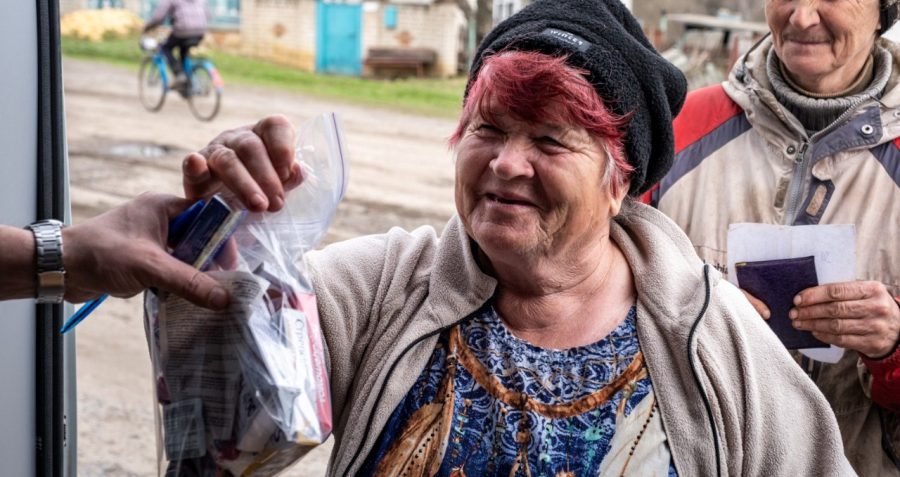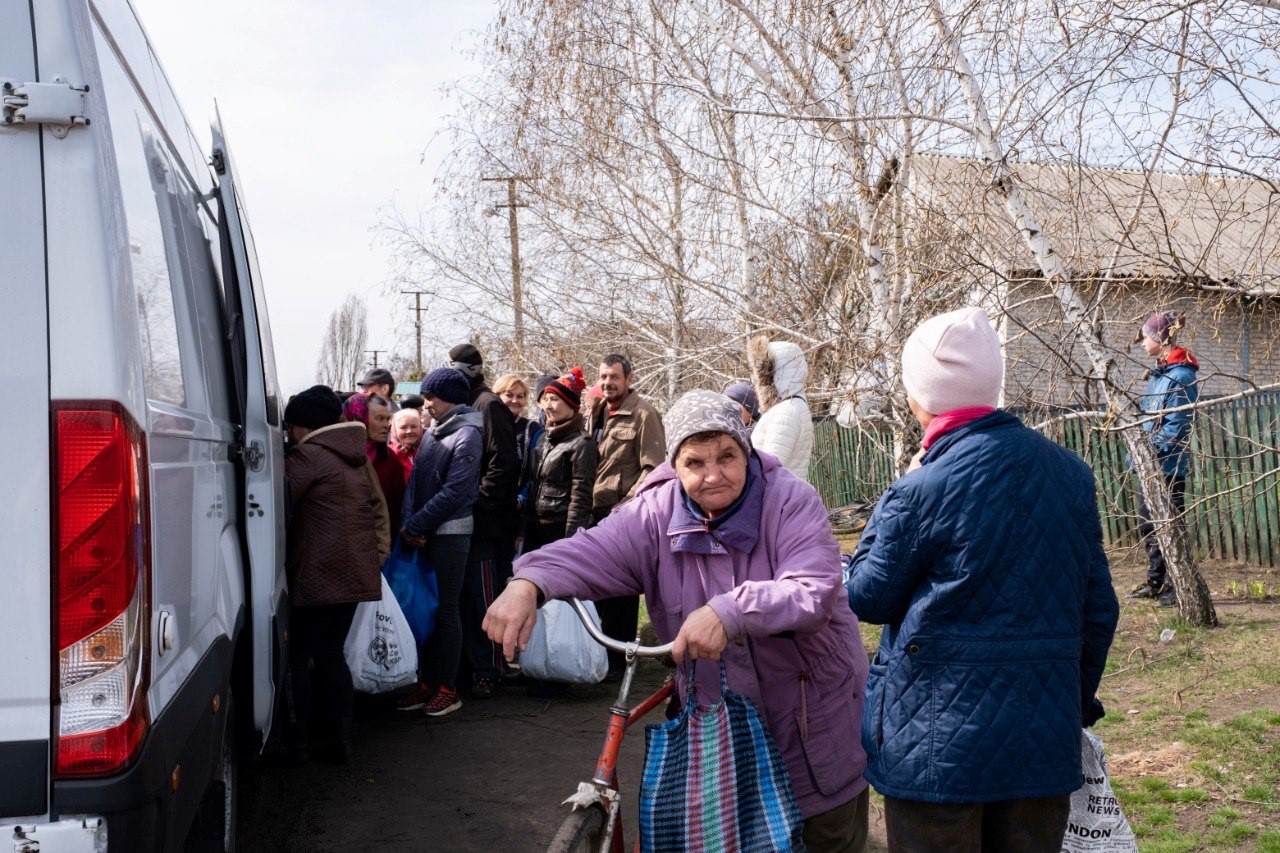Providing healthcare two years on from the Ukraine invasion

February 24 marks the second anniversary of Russia’s brutal full-scale invasion of Ukraine. Two years on, Frontline AIDS’ partner, Alliance for Public Health (APH), a Ukrainian NGO renowned for its dedication to combating HIV and tuberculosis, is using innovative approaches to provide crucial humanitarian support and healthcare to those on the frontline.
Since the early 1990s, the shadow of the HIV epidemic has loomed large over Ukraine. An estimated 245,000 people – almost 1% of the adult population – are living with HIV. Ukraine also has one of the highest prevalence levels of the hepatitis C virus (HCV) in the world, estimated at 3%. The invasion threatened to exacerbate this crisis, putting already vulnerable people, such as people who use drugs and sex workers, at greater risk. This fuelled fears that the invasion would jeopardise the control of infectious diseases and the treatment process, leading to a surge in new HIV and HCV infections.
The war has had a devastating impact on healthcare infrastructure. The World Health Organisation (WHO) has recorded 1,587 attacks on facilities, patients and supplies since the invasion began in 2022. More than one in ten Ukrainian hospitals have been directly damaged by the war .
Providing healthcare to Ukraine’s front line
Undeterred, Frontline AIDS’ partner, APH, has set up two treatment sites within 20 kilometers of the frontline. APH has also deployed an innovative solution: mobile clinics staffed by dedicated nurses and doctors. APH and its partners now operate over 50 mobile clinics, which carry vital medical equipment, medication and tests, including anti-retrovirals (ARTs), to areas where medical facilities and pharmacies have been destroyed and healthcare infrastructure has crumbled.
“When 14 million population were displaced from their homes, it was impossible to remain static. We shifted to mobile service provision, working in de-occupied territories and close to the frontline,” said Andriy Klepikov, Executive Director of APH.

Throughout 2023, four mobile teams tirelessly undertook trips to 152 remote areas in Kharkiv, Kherson, Zaporizhizia and Donetsk regions, providing essential primary care consultations and medications to over 9,839 individuals. They also provided 14,000 families with personalized first-aid kits, ensuring access to basic medical supplies.
Innovating to improve healthcare delivery
APH is also pioneering the use of Artificial Intelligence (AI) programs to analyse client records in order to identify populations vulnerable to HIV infection. AI modelling has been found to be highly effective at identifying high-risk individuals with the highest probability of undiagnosed HIV for testing, support and essential medication.
“We are deploying artificial intelligence for better HIV case finding, and it works!” said Mr Kleipikov. “The AI model shows 37% better results compared to the human model.”
APH is also spearheading the development of a “virtual social worker” application which will provide targeted HIV-focused services to people who would otherwise miss out. This app, designed with peer counselors, will have virtual social workers representing a range of demographic groups (women, men, trans and gender diverse people, men who have sex with men and people who use drugs). Currently undergoing testing, the app, which is funded by the Global Fund, Frontline AIDS and Gilead Health Sciences, is scheduled for a pilot launch in April 2024, marking a significant leap forward in accessible healthcare delivery.
Set up in 2002, APH’s reach and impact over the past 22 years has been remarkable. Every second person diagnosed with HIV during the war was tested within APH-supported programmes, and over 40% of all those who started taking ART were referred and linked to services by APH and its partners. As a result, the number of people taking ARTs is still high in Ukraine, despite the war. More people are taking PrEP (pre-exposure prophylaxis) than in previous years before the war. Thanks to the advocacy of APH and its partners, an injectable PrEP pilot was launched in September 2023 and is now available in Ukraine.
“The HIV response in Ukraine demonstrated enormous agility: the number of clients in some provinces in Western Ukraine increased by 15 times. Despite the challenges, we managed to keep the HIV epidemic under control in Ukraine,” said Mr Klepikov. “How? Collaboration between government and civil society has been key. We also offer extended healthcare packages, which include not only HIV services, but also address humanitarian needs, and we provide mental health support, and deal with other diseases.”
Despite the ongoing war, Mr Klepikov remains determined to improve healthcare provision. “Now that it is clear that the war will last much longer than we initially expected, we shouldn’t wait until the war ends to rebuild. Rebuilding should start now!”
By embracing innovative approaches and mobilising vital resources, APH is ensuring that vulnerable populations in Ukraine receive the healthcare they deserve. It remains a beacon of hope amidst the darkness of the ongoing war.
Inna Gavrylova is the Senior Communications Manager at Alliance for Public Health and Suzanne Fisher-Murray is the communications lead at Frontline AIDS.
Tags
Alliance for Public Health (APH)conflicthealthcare infrastructurehumanitarian supportInnovationmobile clinicsUkrainewar

